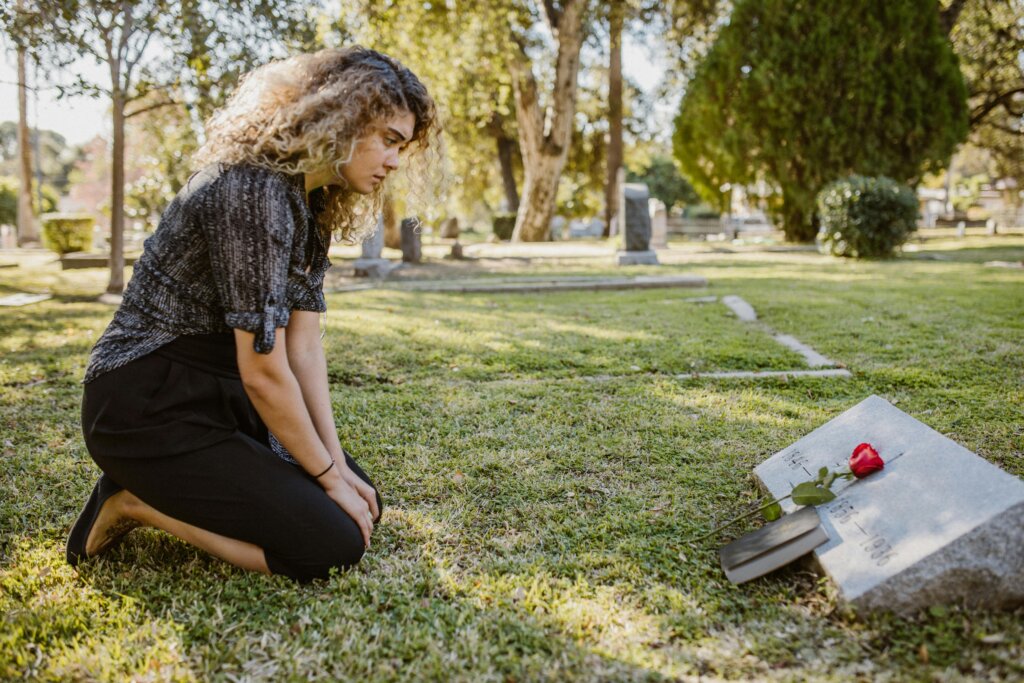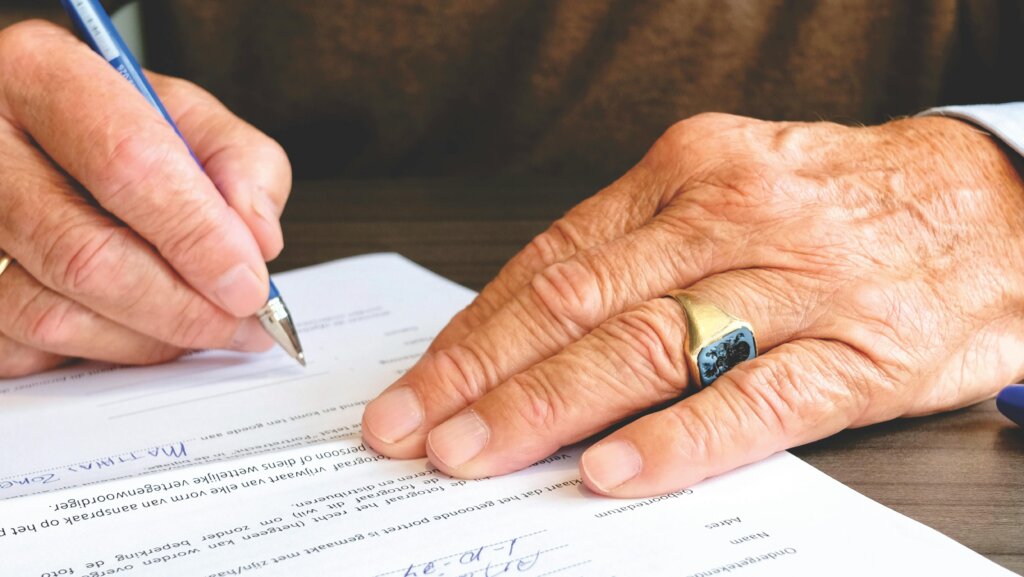
Inheriting a house in Northwest Georgia can feel overwhelming, especially when it happens unexpectedly. Alongside the emotional stress of losing a loved one, you’re suddenly faced with a list of responsibilities, legal processes, and financial decisions that you probably didn’t see coming.
For many heirs, the first question is simple: “What do I do now?”
This guide breaks down the five essential things you should do right away after inheriting a home in Northwest Georgia and explains why selling quickly could be your cleanest, most cost-effective option.
Whether you’re the sole heir or one of several, knowing what to expect can help you avoid expensive delays and unnecessary stress.
1) Secure the Property and Gather Key Documents
First things first: ensure the property is safe and sound. If the house is empty or you’re far away, it’s wise to change the locks, look for any mail or signs of damage, and confirm that the utilities are either turned off or being watched. This helps avoid break ins, vandalism, or surprise bills.
Next, start collecting the most important documents:
- The will or trust
- Death certificate
- Mortgage statements
- Property deed
- Insurance policy
- Any outstanding property tax bills
The sooner you have these in hand, the smoother the legal and financial process will be.

Inherited a property and not sure what to do next?
👉 Get a free, no-obligation cash offer — skip repairs, paperwork, and guesswork.
2) Determine if Probate Is Required
Probate is the legal process used to transfer a person’s property after they pass away. In Northwest Georgia, whether you need to go through probate depends on how the home was owned and if there’s a valid will in place.
When Probate Is Required:
- The deceased was the sole owner of the property
- The will names multiple heirs or executors
- The person died without a valid will, which is called dying intestate
In these cases, the property cannot be sold, rented, or transferred until probate is either opened or completed, which can take several months.
When You Might Not Need Probate:
- The home was held in a living trust
- The property had joint tenancy with right of survivorship
- A transfer-on-death deed was in place, which is rare but possible
If you’re unsure, reach out to a probate attorney or your local probate court in Northwest Georgia. It’s best to get clarity early to avoid unexpected delays down the road.
Helpful Resource:
Learn more about Georgia probate law from this trusted source:
👉 Nolo’s Overview of Georgia Probate

Ready to learn how to sell an inherited home in Georgia, even during probate?
👉 Read our full guide to selling inherited property in Georgia
3) Understand the Financial Responsibilities You’re Inheriting
Many people assume that inheriting a house is “free.” But in reality, most homes come with a stack of financial obligations that start adding up the moment you become responsible for the property.
Ongoing Costs You May Inherit:
- Mortgage payments, if the loan is still outstanding
- Property taxes, which apply even when the house is vacant
- Homeowners insurance coverage
- Utility bills, including water, electricity, gas, and trash services
- Homeowners Association fees, if the property is part of an HOA
- Ongoing maintenance and necessary repairs
If the home sits vacant, you could also be liable for vacancy insurance or higher premiums, especially if it isn’t being monitored or maintained.
Other Unexpected Expenses:
- Unpaid bills or liens left by the previous owner
- Lawn care and urgent repairs needed to avoid fines or code violations
- Probate-related attorney fees and court costs
- Potential capital gains tax if you sell the home later and its value has increased
Bottom line: Inheriting a house often means inheriting the debt and responsibility that come with it, even before you decide what to do with the property.

Overwhelmed by the costs of an inherited home?
👉 Let us take it off your hands with a fair cash offer — no repairs or payments needed
4) Decide if You Want to Keep, Rent, or Sell the Property
Once you’ve secured the home and gathered the financial info, it’s time to make a big decision: Should you keep it, rent it out, or sell it?
Each option has pros and cons, and the right move depends on your financial situation, the condition of the house, and how many heirs are involved.
Option 1: Keep the Property
Keeping the home might make sense if you plan to live there or pass it down, but only if:
- The home is already paid off
- You can afford the ongoing taxes and upkeep
- You’ve gone through (or avoided) probate
Potential Pitfalls:
You may be taking on a long-term financial burden, especially if the house needs repairs or is located far away.
Option 2: Rent It Out
Renting the home can generate income, but it’s not passive money.
You’ll need to:
- Clean and repair the home
- Find tenants and manage the lease
- Handle property management or maintenance issues
- Pay taxes on rental income
For many heirs, renting ends up being more of a headache than a payoff.
Option 3: Sell the House
Selling the home is usually the cleanest, fastest way to move forward, especially if:
- You have multiple heirs
- You don’t want to deal with ongoing costs or property management
- The house needs repairs or has an active mortgage
Selling for cash allows you to avoid:
- Showings
- Repairs
- Agent commissions
- Delays from buyer financing

Not sure what to do with your inherited home?
👉 Get a fair, fast cash offer today — and decide with no pressure or commitment.
5) Consider Selling Quickly, As-Is, to Avoid Headaches
If the idea of managing repairs, dealing with probate, or coordinating with siblings stresses you out, you’re not alone.
That’s why many heirs in Northwest Georgia choose to sell their inherited house as-is for cash and avoid months of uncertainty, expense, and emotional drain.
Why Selling Fast Makes Sense:
- No need to make repairs or updates
- Avoids ongoing costs like mortgage, taxes, and utilities
- Faster resolution for multiple heirs
- No showings, listings, or negotiations
- You can sell even during probate in many cases
Why Work With We Are Home Buyers?
We specialize in helping Northwest Georgia families sell inherited homes quickly and fairly.
You’ll get:
- A no-obligation cash offer
- Guidance through probate (if needed)
- Help working with multiple heirs
- No commissions, fees, or surprises
You don’t need to wait. You don’t need to clean. You just need a fair offer and a clear path forward.

Inheriting a home doesn’t have to turn into a full-time job.
👉 Get your cash offer now and sell your Northwest Georgia property the easy way.
What You Need to Know About Inherited Homes in Georgia: FAQs
Do I have to pay taxes on an inherited house in Georgia?
Thankfully, Georgia doesn’t have an inheritance tax, so you won’t owe anything just for receiving the property. But if you decide to sell the home down the line, you might have to pay federal capital gains tax if it’s worth more now than when you inherited it. The bright side? Most people get what’s called a “stepped-up basis,” which means the home’s value resets to its fair market value at the time of inheritance. That can seriously reduce how much tax you owe. If you’re unsure how it all works, it’s always a good idea to check in with a tax advisor before making any big decisions.
Can I sell an inherited home during probate?
Yes, in a lot of cases you actually can sell the house while it’s still in probate. If you’re the executor or the court-appointed administrator, you usually just need the court’s approval to move forward. This process can feel complicated, but working with a cash buyer can make things a whole lot easier. These buyers often know how to work directly with your attorney, take care of the legal paperwork, and close on a timeline that works best for you. So, even if probate feels overwhelming, selling during this time can be a smooth way to move forward without waiting months or dealing with extra stress.
Do all heirs have to agree to sell inherited property in Georgia?
Usually, yes. If more than one person inherited the home and everyone’s listed as a co-owner, you’ll all need to agree before a sale can move forward. If someone doesn’t want to sell, things can get tricky. One option is a court process called a partition action, but that can be stressful and expensive. In many cases, a straightforward cash sale everyone agrees on can help avoid conflict and keep things simple.
What happens if the inherited home has a mortgage?
If the home still has a mortgage, that loan doesn’t just disappear. Someone will need to keep making the payments, or the lender could start the foreclosure process. Some heirs choose to take over the loan, while others decide to sell the home to avoid the burden. A cash sale can be a good way to handle it quickly without falling behind.
Do I need a lawyer to sell an inherited home in Georgia?
You don’t have to have a lawyer, but honestly, it can make your life a lot easier. If the house is tied up in probate, if you’re dealing with siblings or other heirs, or if the paperwork feels confusing, having a good probate or real estate attorney can save you headaches. They help make sure everything goes smoothly, so you don’t get stuck with unexpected problems or delays. Lots of folks say it’s worth having someone who knows the process to guide you through.
How do I know if keeping the home is the right decision for me?
This is one of the most overlooked questions. Inheriting a home is emotional, and sometimes it’s easy to default to “I should hold onto it.” But ask yourself: do I really want to be a landlord? Can I afford the upkeep? Will this house improve or complicate my life right now? It’s okay to let go, especially if a fast sale gives you the freedom or financial breathing room you need.
Move Forward With Confidence
Inheriting a house in Northwest Georgia can feel overwhelming, emotionally and financially. But with the right information, you can avoid mistakes, reduce costs, and make the best decision for you and your family.
For many heirs, that decision is to sell quickly, skip the stress, and move on with a fair cash offer.
At We Are Home Buyers, we’ve helped dozens of Northwest Georgia families just like yours. Whether you’re in probate, facing disagreement with siblings, or just want a clean break, we’re here to help.
